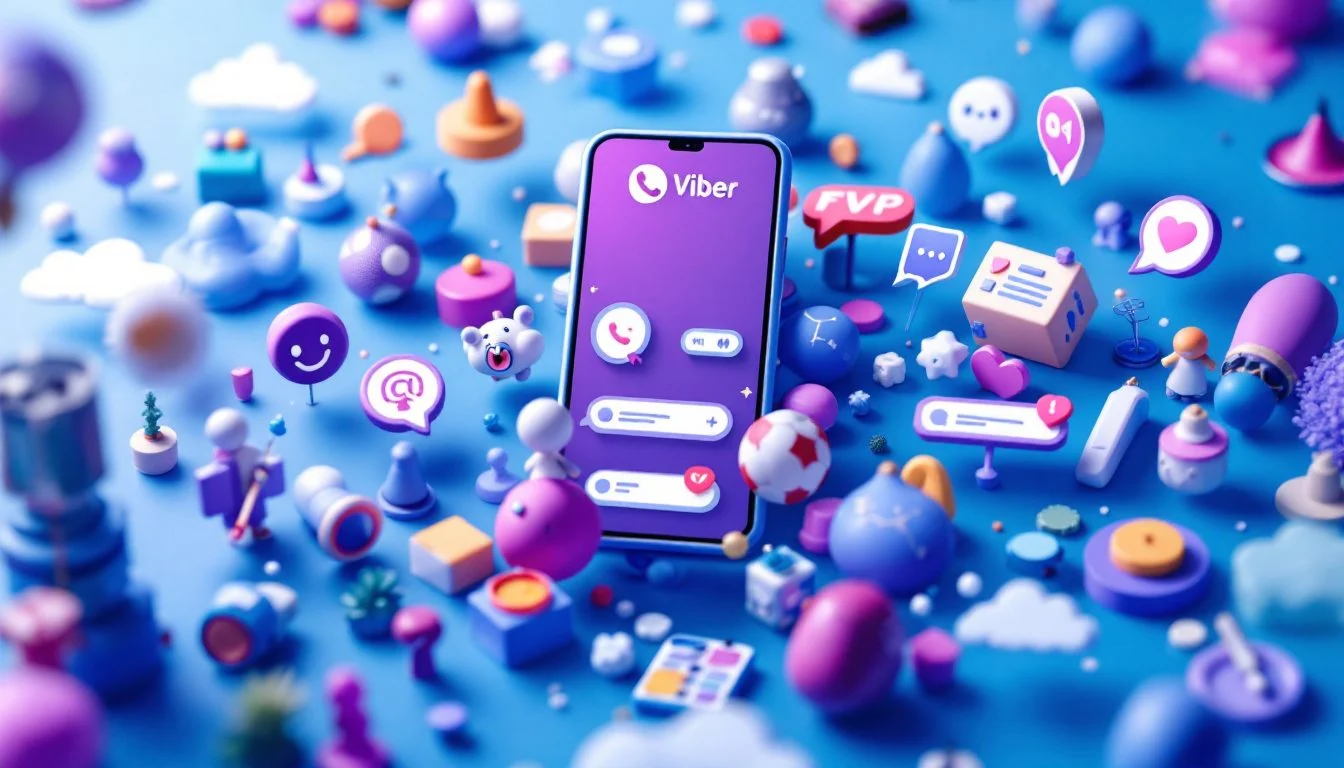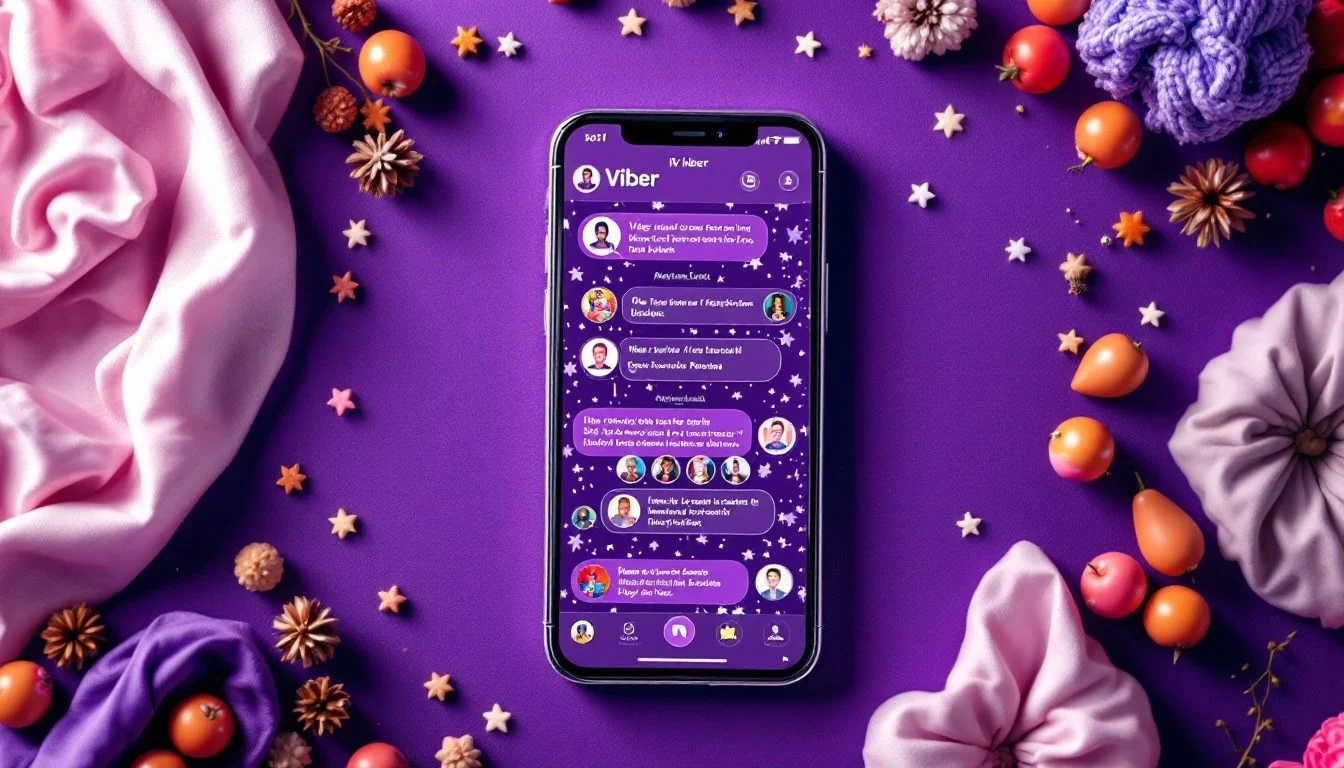Is Viber a Russian app? Here’s what privacy-conscious users and security professionals need to know.
Many people assume Viber comes from Russia because of its massive popularity there, but this popular messaging app actually has completely different roots. With Russia recently banning Viber and ongoing questions about messaging app origins affecting user privacy decisions, understanding where Viber really comes from matters more than ever.
This guide covers Viber’s actual ownership structure (spoiler: it’s not Russian), how Russia’s recent regulatory actions against the platform reveal the complex relationship between messaging apps and government control, and what Viber’s response to the Russia-Ukraine conflict tells us about the company’s true allegiances.
Viber’s Origins and Ownership Structure
Founded in Israel by Talmon Marco and Igor Magazinnik in 2010
Viber messaging app originated in Tel Aviv, Israel, when entrepreneurs Talmon Marco and Igor Magazinnik established the company in 2010. This Israeli foundation directly contradicts any claims that Viber is a Russian app, as the company’s roots are firmly planted in the Middle Eastern tech hub known for innovation.
Acquired by Japanese Company Rakuten for $900 Million in 2014
The Viber ownership structure changed significantly when Japanese multinational company Rakuten Media acquired the messaging platform for $900 million on February 13, 2014. Currently owned and operated by Rakuten Inc., Viber operates under Japanese corporate governance with headquarters based in Cyprus and maintains global offices across major cities including London, Manila, Moscow, Paris, San Francisco, Singapore, Tokyo, and Beijing.
Technical Features and Platform Development![]()
Cross-platform messaging and VoIP capabilities across multiple devices
Viber offers comprehensive cross-platform VoIP and instant messaging capabilities across Android, iOS, Microsoft Windows, macOS, and Linux systems. The desktop versions operate independently after mobile registration, providing users with seamless communication options regardless of their preferred device or operating system.
End-to-end encryption implementation added in 2016
With security becoming increasingly important for messaging app users, Viber implemented end-to-end encryption in its service with the release of version 6.0 on April 19, 2016. This encryption feature ensures that user communications remain private and secure from unauthorized access.
Business tools including Public Accounts, Communities, and chatbots
Viber has expanded its platform with various business-oriented features. Public Accounts launched in November 2016 enable brand engagement, while Communities introduced in February 2018 enhance group chats with unlimited participants. The platform also supports various chatbots, and recently announced new business tools including Business Inbox and Commercial Accounts in January 2023.
Premium services and payment features for enhanced user experience
The messaging app has diversified its offerings with premium services like Viber Plus, launched in May 2022, which provides exclusive features including ad-free use and sticker market privileges. Additionally, Viber Payments was introduced in April 2023, enabling instant, free account-to-account money transfers in several European countries.
Global Market Presence and User Demographics![]()
Global Market Presence and User Demographics
Viber has established a significant global market presence, reaching over 1 billion registered users worldwide as of 2018. The messaging app demonstrates particularly strong popularity across Eastern Europe, the Philippines, Greece, and the Middle East, with over 70% penetration rates in CIS and CEE regions as of 2018.
The platform’s regional dominance is especially notable in several key markets. Viber holds commanding market shares in Ukraine (97.7% as of September 2021), Bulgaria (90% in 2021), and Serbia (over 90% as of November 2021). Even within Russia itself, despite not being a Russian-owned platform, Viber ranked as the third most popular messaging app with over 17 million daily users.
Russia’s Regulatory Actions Against Viber
Multiple Fines and Content Removal Disputes
Following Moscow’s 2022 invasion of Ukraine, Russian authorities have repeatedly targeted Viber with substantial financial penalties for refusing to remove Ukraine war-related content. The messaging platform received multiple fines, including a notable 1 million ruble penalty imposed in October 2023, as part of Russia’s systematic pressure campaign against foreign tech platforms.
Complete Platform Ban and Serious Allegations
Roskomnadzor, Russia’s internet regulator, implemented a complete Viber Russia ban on December 13, 2024, marking the culmination of escalating regulatory tensions. The authorities alleged that Viber facilitated terrorism, extremism, drug trafficking, and illegal content distribution, with parliamentarians claiming the platform’s simple registration process and high confidentiality features enabled criminal activities. This decisive action represents part of Russia’s broader strategy to isolate itself from global internet services while promoting domestic messaging alternatives.
Company’s Response to Russia-Ukraine Conflict
Removed Advertising from Service in Ukraine and Russia in 2022
In February 2022, following Russia’s invasion of Ukraine, Viber took swift action by removing all advertising from its messaging service in both Ukraine and Russia. This decision demonstrated the company’s response to the ongoing conflict while maintaining its commitment to keeping communication channels open for users in both countries.
Rakuten Founder Donated $8.7 Million to Support Ukraine
Beyond corporate policy changes, Rakuten founder Hiroshi Mikitani made a significant personal contribution to Ukraine’s cause by donating $8.7 million in February 2022. This substantial financial support highlighted the parent company’s stance on the Russia-Ukraine conflict and reinforced Viber’s alignment with supporting Ukraine during this challenging period.
Maintained Operations Despite Russian Regulatory Pressure
Despite removing advertisements, Rakuten Group explicitly stated in February 2022 that it would not block Viber service in Russia and Ukraine. The company maintained its intent to continue operations until Russian authorities imposed a complete ban, demonstrating resilience against Russian regulatory pressure while prioritizing user access to communication services.
Based on the evidence examined, Viber is definitively not a Russian app. The messaging platform was founded in Israel in 2010 by Talmon Marco and Igor Magazinnik, later acquired by Japanese multinational company Rakuten in 2014 for $900 million. While Viber maintains offices in multiple countries including Moscow, its ownership structure and corporate headquarters remain firmly outside of Russian control, with its legal entity based in Luxembourg under Rakuten’s umbrella.
The recent regulatory actions by Russia further underscore Viber’s non-Russian identity. Moscow’s decision to block the app in December 2024, citing alleged facilitation of terrorism and drug trafficking, demonstrates the adversarial relationship between Russian authorities and the platform. The company’s response to the Russia-Ukraine conflict—removing advertising from both countries and its founder’s $8.7 million donation to support Ukraine—clearly positions Viber against Russian interests. For users concerned about data privacy and geopolitical implications, understanding an app’s true ownership and operational structure remains crucial in today’s interconnected digital landscape.






LATEST NEWS
Πώς να κρύψετε φωτογραφίες στο Instagram χωρίς να τις διαγράψετε
MoreΟι Κρυφοί Κίνδυνοι του Roblox που Κάθε Γονιός Πρέπει να Γνωρίζει
MoreΠώς να Αποθηκεύσετε Φωτογραφίες από το Instagram: 4 Εύκολες Μέθοδοι
More